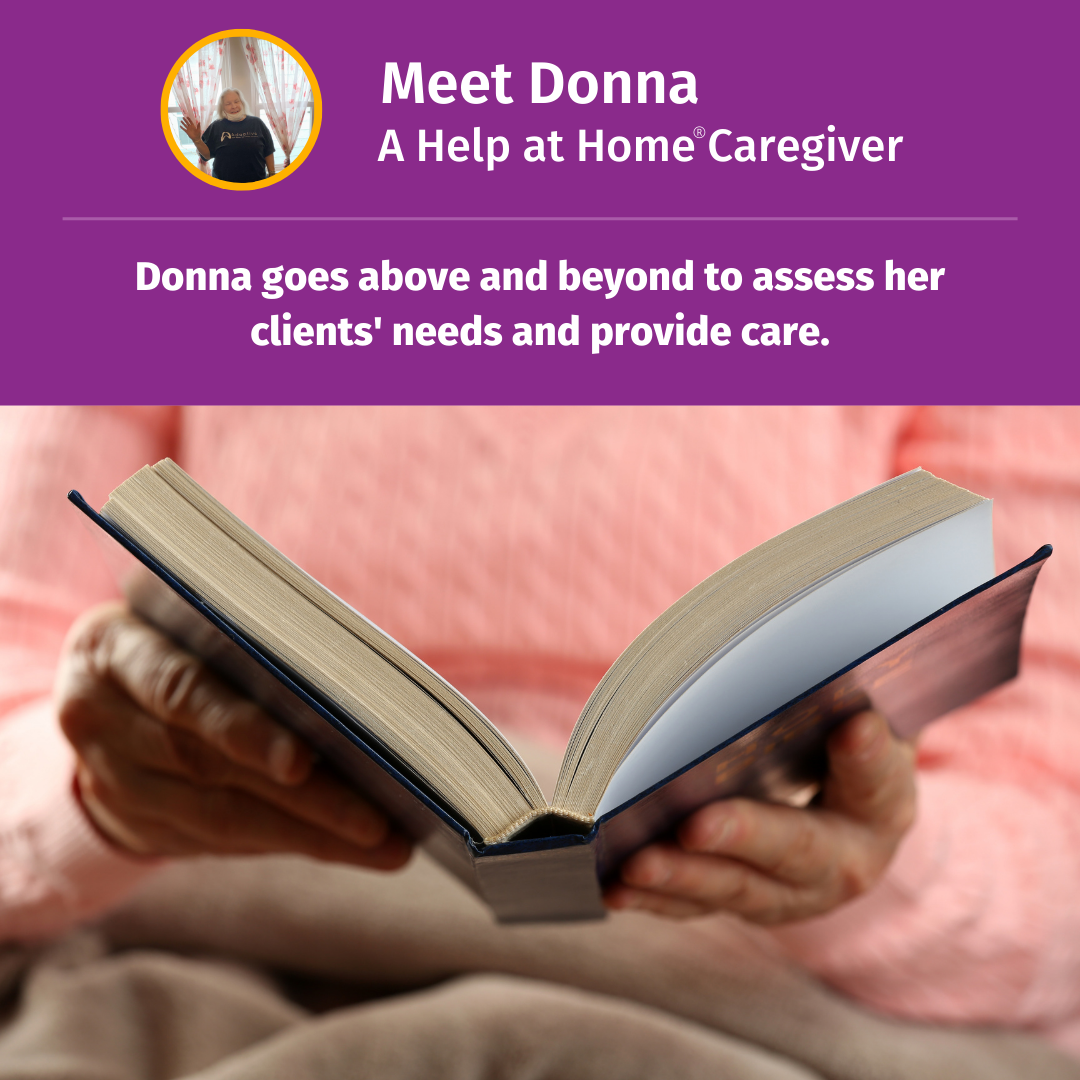At Home Caregiving: A fulfilling career that helps people

For many people, one important part of a fulfilling career is feeling like your ideas make a difference.
For the past five years, Donna Suss had been recognized as a valuable problem solver in her role as a home caregiver on the Help At Home team. She is someone who makes a difference for every client.
“The first thing you have to realize is that you have to build a relationship,” she said. She said she starts by really listening to her clients to determine what they need and want. She knows that even though she’s hired to help; she’s a guest in their home and should listen to what they think they most need.
Getting to know clients helps caregiver give them the help they need most
Here are some examples:
One of her clients was constantly talking about the small town he had grown up in, about an hour from where he currently lived. Donna eventually asked him if he would like to go there to visit. They waited for a nice sunny day and drove over to the town for an outing. They drove around finding places he remembered, laughing about the way the town had changed and having a nice lunch. For a man who rarely got to leave the house anymore, it was a good day, and a memorable moment. It was also a good day for Donna, because she felt like she was able to give the client what he needed!
In another situation, Donna was able to pick up on a client’s need that had been overlooked by medical personnel. No one was sure why he was losing weight, becoming weaker and needing to use a wheelchair to get around. He kept saying he wasn’t hungry. But Donna realized there was no food in the house at all. She found that if she brought food in, he did eat. She connected him with community food assistance programs. With regular meals, he soon recovered strength and was able to use a walker to get around instead of a wheelchair.
Thoughtful caregivers provide support and understanding to clients
Another client began refusing to go on outings, which was a concern to everyone who knew her. She had always loved to go on outings! Donna talked to her enough to learn that she had become embarrassed by a time when she had fallen and needed help from neighbors to get back up. She didn’t want to leave the house because she was worried about falling again. Donna loaned her a rollator, which is like a walker but has a built-in seat so the person using it can sit down and rest if needed. Once the client had tried out the rollator, she knew she liked it and they were able to get her one through her health insurance.
Donna is also currently helping a client learn how to read better. The client, who had a stroke, isn’t able to leave the house often and is frequently bored. But she likes to learn about things on her iphone. Donna asked if she would like to strengthen her reading skills, so that she could get more use out of the phone and the client happily agreed. Donna was able to get some small booklets that she uses with the client to strengthen her reading. Donna said she had to build a relationship of trust with the client, before they felt comfortable talking about things like wanting to learn to read better.
“I’m not special,” Donna said. “Everyone who works here helps clients like this. It takes a bunch of caring people to make it work. This whole job is about caring.”
